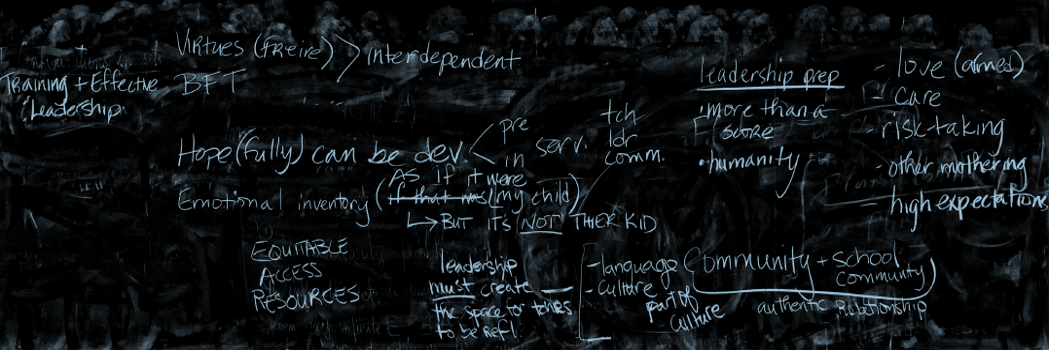Recognizing students for their cultural significance and all the contributions that they bring into the classroom not only affirms students but also, makes them part of the democratic process of schooling (Antrop-Gonzalez & Dejesus, 2006). The readings for this week highlighted that affirming students and teaching with authentic care are two factors that are inextricable from student success (Antrop-Gonzalez & Dejesus, 2006; Tichnor-Wagner & Allen, 2016). A point that was well made by Tichnor-Wagner & Allen (2016) is that exercising ethics of care is priceless as such, I question why it is so hard for teachers and school leaders to exercise care? In reading Rolon-Dow (2005) the point of understanding how race and class intersect with how students receive and interpret caring stood out tremendously. Similarly, I am reassured that “caring” cannot be forced onto educators instead, it must be demanded. More specifically, if educators aren’t able to care about the students they serve then they don’t deserve the right to teach. The aforementioned point of demanding caring educators is strong but the damage that has been done by those who don’t care has been worse. Students respond to caring environments provided that it is the right care as such they also respond to being held accountable because of established trust and the belief by their school leaders in their greatness (Curry, 2016; Rivera-McCutchen, 2012).
My final thought for this week has landed on the Community Control movement of 1966. Perhaps we need to disrupt public education and push for community control over our public school system? Can this ever happen? I know it’s happening in fragmented ways but, what if this was the way we “did” public education?




Hi Fatima,
I also thought about the Community Control movement a lot when reading the articles for this week! Especially when watching the video about CC9 – so many aspects of the work of the coalitions reminded me of the organizing that parents did in the 1960s in direct response to the racist practices happening in their children’s schools. And I was also struck by the response of the DOE to replicate their Lead Teachers program while removing the central feature – the power and vision of the parents of the children in the school to design, direct, and implement the program itself. Essentially, they removed the community control aspect entirely. The resistance of the UFT and the chancellor to actual allocations of power to parents reminded me so much of the response of the teachers union to the community control movement of the 60s.
I love your wondering at the end about a disruption of our current system and a push for community control over the entire public school system. I also wonder what that could look like, and what it would take to overcome the deeply entrenched and racist system that is unwilling to cede its power.